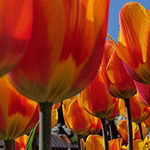Deciding on what lens to get can be tough. It can be even more difficult than deciding on what camera to buy. On the one hand, there are measurable variables like focal length, aperture, weight, and size. On the other, there’s sharpness and image quality. The latter two are something that normal eyes can’t differentiate easily which makes the task of choosing a lens difficult. In today’s video, professional landscape photographer Nigel Danson explains the factors he considers when choosing a lens:

A common advantage that most expensive lenses have over the cheaper variants is that they are sharper, especially on the edges of the frame. However, expensive lenses also tend to be bulkier. And while maintaining a wide aperture wide doesn’t matter much in daytime landscape photography, the ability to produce a sharp and detailed image is what you should be concerned about.
Similar to Danson’s photography, you too can produce fantastic results that are comparable to those from expensive lenses. You just need to pay attention to a few things. The key is to have an understanding of your lens’s behavior. Typically, lenses exhibit greater distortions and produce softer results when set to their widest aperture. However, every lens has its sweet spot, which can be a combination of a focal length and a particular aperture where it performs the best. The best way you can find it is by spending time with your lens, taking photos at various settings, and by carefully inspecting the results. You will be surprised by how well your cheaper lens can perform.
Knowing your lens not only saves you a good amount of money, but also enables you to have a lighter backpack while providing greater versatility. Make sure that you spend a good amount of time getting to know your lens.
Like This Article?
Don't Miss The Next One!
Join over 100,000 photographers of all experience levels who receive our free photography tips and articles to stay current:






“sharpness and image quality….are something that normal eyes can’t differentiate easily”
So why worry about them?
This article really doesn’t say anything useful. Very strange.